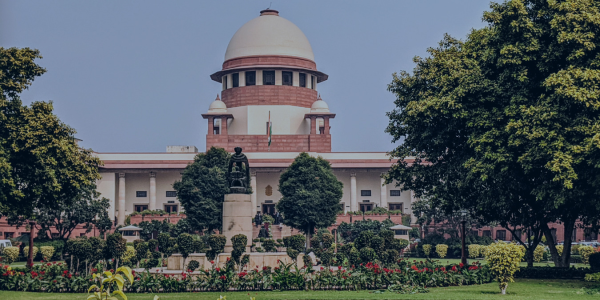workplace unless and until there is strict adherence to the enforcement regime and a proactive approach by all the State and non-State actors.
If the working environment continues to remain hostile, insensitive and unresponsive to the needs of women employees then the Act will remain an empty formality.”- Supreme Court in Aureliano Fernandes vs State of Goa and Others
[Civil Appeal No. 2482 of 2014]
A Division Bench of the Supreme Court, comprising Justice A.S. Bopanna and Justice Hima Kohli, issued directives on May 12, 2023, regarding the effective implementation of the Sexual Harassment of Women at Workplace (Prevention, Prohibition and Redressal) Act, 2013 (“PoSH Act”) in the case of Aureliano Fernandes vs. State of Goa and Others.
Background of the Case
The case pertained to an appeal against an order by the High Court of Bombay, Goa Bench, which upheld an order in a sexual harassment case involving the petitioner, a professor at Goa University. The order had resulted in the petitioner's dismissal and disqualification from future employment. The petitioner argued that there were procedural lapses committed by the Standing Committee that conducted the inquiry. The Supreme Court considered the petitioner's arguments and ruled in their favor.
Past Failures and Previous Directives
While considering the arguments, the Supreme Court took into account the directions issued in a Public Interest Litigation case, Medha Kotwal Lele and Others vs Union of India and Others [(2013) 1 SCC 311]. It was brought to the Court's attention that the Vishaka Guidelines needed to be followed and that Complaint Committees should be established in accordance with those guidelines. The Court directed the establishment of officers at nodal levels to ensure compliance with these requirements. In 2012, exercising its powers of the writ of continuing mandamus, the Supreme Court, expressing disappointment at the lack of compliance by the states, issued further directives. These directives can be summarized as follows:
- Revision of existing laws and, if necessary, the enactment of new laws to safeguard women from any form of indecency, indignity, and disrespect in all settings, including homes.
- Appropriate amendments to the Civil Service Conduct Rules, the Industrial Employment (Standing Orders) Rules, and the establishment of Complaint Committees at the Taluka, District, and State Levels.
- Full implementation of the Vishaka guidelines by Public and Private Sector Organizations and Statutory Bodies for professionals.
Epilogue in the Current Case
In a concluding remark, the Supreme Court decided to assess the implementation of the PoSH Act since its enactment in 2013, a decade later. The Court acknowledged that the establishment of an Internal Committee (IC) by every employer, both in the private and government sectors, was pivotal to the Act. It also recognized the drawbacks of an improperly constituted IC, which hindered effective investigation of workplace sexual harassment and resulted in inadequate inquiries with adverse consequences.
Referring to the ongoing protests against the Wrestling Federation of India (WFI), the Bench highlighted significant failures in enforcing the Act even after ten years of its implementation. The Court mentioned a survey conducted by a national reporter (as mentioned in the judgment), which revealed that out of 30 national sports federations in the country, many did not have a functioning IC. In cases where ICs were established, they lacked the required number of members or failed to include an external member. The Court expressed strong disapproval of the "sorry state of affairs" and considered it a poor reflection on all state functionaries, public authorities, private undertakings, organizations, and institutions that have a duty to implement the PoSH Act.Recognizing the toll that sexual harassment takes on victims, including their self-esteem, emotional well-being, physical health, and mental health, the Court noted that it often led to victims leaving their jobs. The Court also acknowledged the hesitance of victims to report such misconduct due to uncertainty regarding the appropriate authority to approach and a lack of confidence in the process and its outcomes. Emphasizing the importance of educating complainants about the Act, including its procedural aspects and the potential consequences for the accused employee, including false complaints, the Court reiterated the need for awareness and understanding of the Act's provisions.
Breaking down the Directives
In order to fulfill the objectives of the PoSH Act, the Supreme Court has issued directives that must be complied with by relevant authorities within 8 weeks from the date of issuance.
The following directives are relevant to corporates:
- Central and State Governments are required to conduct a time-bound verification exercise to ensure that all government and private bodies have established Internal Committees that strictly adhere to the provisions of the PoSH Act.
- Corporates must provide details of the constituted Internal Committees, including contact information (email IDs and phone numbers) of designated persons, on their organization's websites. Additionally, the procedure for submitting complaints, relevant rules, regulations, and internal policies of the bodies and institutions must be readily available and regularly updated.
- Management and employers must take immediate and effective steps to familiarize members of the Internal Committees with their duties and the proper procedures for conducting inquiries when handling a complaint under the Act. This includes providing guidance from the time of complaint receipt until the conclusion of the inquiry and the submission of the final report.
- Regular orientation programs, workshops, seminars, and awareness programs should be conducted by management and employers to enhance the skills and knowledge of the Internal Committee members.
- Management and employers should educate women employees about the provisions of the Act, its rules, and regulations to ensure their awareness and understanding of their rights and recourse under the Act.
What does this mean for Employers?
The unfortunate reality persists within organizations that there is a lack of awareness about the PoSH Act among employees and a deficiency in establishing well-functioning, compliant, and sensitized Internal Committees (ICs).
While taking the matter seriously, the Court remarked, “If the authorities/management/employers cannot assure them (women) a safe and secure workplace, they will fear stepping out of their homes to make a dignified living and exploit their talent and skills to the hilt”.
Given the Supreme Court's call for the effective implementation of the PoSH Act, employers are likely to be held accountable for reporting compliance. The responsibility of stepping up and ensuring the Act's implementation, with the goal of creating a safe and productive workplace, lies squarely on the employers. They must take proactive measures to develop efficient gender-safe policies, establish well-equipped and proactive ICs, and conduct periodic checks to ensure compliance.
Disclaimer: No information contained in this website may be reproduced, transmitted, or copied (other than for the purposes of fair dealing, as defined in the Copyright Act, 1957) without the express written permission of Rainmaker Online Training Solutions Pvt. Ltd.











